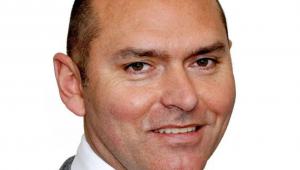A seven-point plan issued by NHS England and NHS Improvement, and supported by the Care Quality Commission and Department of Health, aims to cut the provider sector deficit to £250m for 2016-17 and begin 2017-18 in “run rate” balance.
The move came as the National Audit Office warned the Department of Health and NHS that their finances were still some way from sustainability and came perilously close to breaching the budget limit voted by Parliament in the last financial year.
The plan allows trusts to access this year’s £1.8bn Sustainability Fund in return for meeting agreed “financial control totals” and spending limits, as well as service improvements around, for example, A&E and cancer waiting times.
In addition, caps have been applied to the cost of interim managers working in clinical commissioning groups and commissioning support units. Back-office, pathology and temporary staff savings are being fast-tracked.
Performance ratings for CCGs are also being published today and a two-year planning and contracting round has been announced for 2017-18-2018-19, which needs to be completed by December.
Finally, the plan introduces a new intervention regime of special measures for those trusts and CCGs that are failing to meet their financial commitments.
Five providers have been placed in special measures today and the 26 CCGs rated as “inadequate” will also face interventions.
Announcing the plan, NHS Improvement chief executive Jim Mackey said: “This suite of measures will help ensure that the providers facing the greatest financial challenges are supported to bring about rapid financial recovery, while maintaining or improving quality.
“This plan is intended to restore financial discipline and ensure ongoing financial sustainability across the whole NHS.”
NHS England chief executive Simon Stevens added that action was needed to both stabilise finances and kickstart service changes.
“Most trusts and CCGs know what needs to get done to release funds for local reinvestment in better patient care and now is clearly the time to fire the starting gun,” he said.
“Today’s ‘reset’ sets out the agreed legal responsibilities of individual NHS bodies to live within the funding Parliament has decided should be available to the NHS this year. These individual accountabilities will be supplemented by the sustainability and transformation plans now being developed in communities across England, which will set out the wider, shared action they will take together to unleash broader improvement on health, care, and financial sustainability to 2020.”
The five trusts placed in special measures today are:
· Barts Health NHS Trust
· Croydon Health Services NHS Trust
· Maidstone and Tunbridge Wells NHS Trust
· Norfolk and Norwich University Hospitals NHS Foundation Trust
· North Bristol NHS Trust
The CCGs placed in special measures include:
· Coventry and Rugby CCG
· Croydon CCG (based on its financial position in Q1 of 2016/17 – the CCG was rated as ‘requires improvement and not ‘inadequate’ in 2015/16)
· East Surrey CCG
· Enfield CCG
· North Somerset CCG
· North Tyneside CCG
· South Gloucestershire CCG
· Vale of York CCG
· Walsall CCG
From this year onwards, NHS England is introducing a more rigorous and transparent approach to CCG ratings. They will be rated in 29 areas underpinned by 60 indicators, all available to patients on the myNHS website.
CIPFA chief executive Rob Whiteman commented: “The package of interventions appear to strike a balance between helpful assistance and second-guessing professional judgment. Investment in deficit reduction is welcome, as is replacing the fines mechanism that added burdens but arguably achieved no measurable improvements to service delivery.
“Moving to a two-year planning cycle is a positive step towards better stability. But the high cost of temporary management staff bears testament to broader systemic failings that continue to undermine good finances and must be addressed.
“Above all, these measures must be a positive driver for change and not a witch-hunt. Regulators must give local leaders the tools to drive real service transformation. Ultimately, NHS finances will continue to flounder while we persist in spending so much less on healthcare than other developed nations as a proportion of GDP.”
Saffron Cordery, director of policy at NHS Providers, said: “Simply loading up providers with savings targets they can’t achieve and exhorting them to try harder won’t work.
“Some trusts can improve their financial performance and NHS Improvement and NHS England have outlined a number of ways to do this. Putting clinical commissioning groups as well as trusts into financial special measures is one approach.
“The NHS has been down this road before so it’s important that we have learned the lessons about the potentially demotivating impact on staff... the central bodies in the NHS must do all they can to support them through the process quickly and in better shape.”
She added that a revised approach to financial planning in the long term was needed.




















